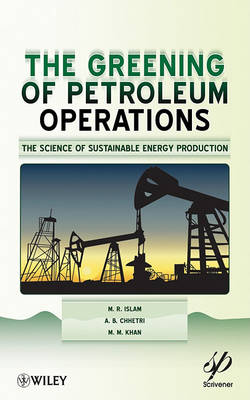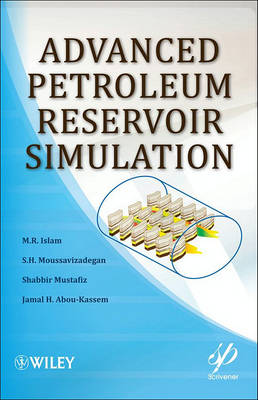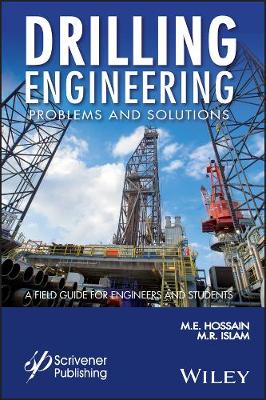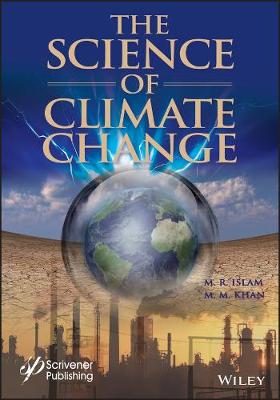Wiley-Scrivener
3 primary works • 7 total works
Book 32
The Greening of Petroleum Operations
by M. R. Islam, A. B. Chhetri, and M. M. Khan
This groundbreaking new volume: * Explains why current petroleum industry practices are inherently unsustainable and offers unique new solutions for "greening" the petroleum industry * Discusses hot-button issues, such as global warming, carbon sequestration, zero-waste management, and sustainability * Shows engineers and scientists how to implement the processes necessary to be more environmentally conscious * Offers, for the first time, a new theory that certain carbons do not contribute to global warming, but their origin and the processes involved do Praise for The Greening of Petroleum Operations "The book proposes a paradigm shift in energy management. It correctly identifies root causes of environmental impact of current petroleum production operations. With proper science, the book shows that fossil fuel production and utilization are inherently sustainable as long as natural materials and energy sources are used...This book has the potential of revolutionizing energy management practices." Farouq Ali, Honorary Professor of Oil and Gas Engineering, University of Calgary
Book 40
Advanced Petroleum Reservoir Simulation
by M. R. Islam, S Hossien Mousavizadegan, Shabbir Mustafiz, and Jamal H Abou-Kassem
This state of the art publication in petroleum simulation:
Describes solution techniques that allow multiple solutions to the complete equations, without linearization.
Solves the most difficult reservoir engineering problems such as viscous fingering.
Highlights the importance of non-linear solvers on decision tree with scientific argument.
Discusses solution schemes in relation to other disciplines and revolutionizes risk analysis and decision making.
Includes companion software with 3-D, 3-phase multipurpose simulator code available for download from www.scrivenerpublishing.com.
By providing a valuable tool to support reservoir simulation predictions with real science, this book is an essential reference for engineers, scientists and geologists.
Book 82
Is "zero waste engineering" possible?
This book outlines how to achieve zero waste engineering, following natural pathways that are truly sustainable. Using methods that have been developed in various areas for sustainability purposes, such as new mathematical models, recyclable material selection, and renewable energy, the authors probe the principles of zero waste engineering and how it can be applied to construction, energy production, and many other areas of engineering.
This groundbreaking new volume:
-
Explores new scientific principles on which sustainability and zero waste engineering can be based
-
Presents new models for energy efficiency, cooling processes, and natural chemical and material selection in industrial applications and business
-
Explains how "green buildings" and "green homes" can be efficiently built and operated with zero waste
-
Offers case histories and successful experiments in sustainability and zero-waste engineering
Ideal for:
Engineers and scientists of all industries, including the energy industry, construction, the process industries, and manufacturing. Chemical engineers, mechanical engineers, electrical engineers, petroleum engineers, process engineers, civil engineers, and many other types of engineers would all benefit from reading this exciting new volume.
Drilling Engineering Problems and Solutions – A Field Guide for Engineers and Students
by M. E. Hossain and M. R. Islam
Petroleum and natural gas still remain the single biggest resource for energy on earth. Even as alternative and renewable sources are developed, petroleum and natural gas continue to be, by far, the most used and, if engineered properly, the most cost-effective and efficient, source of energy on the planet. Drilling engineering is one of the most important links in the energy chain, being, after all, the science of getting the resources out of the ground for processing. Without drilling engineering, there would be no gasoline, jet fuel, and the myriad of other "have to have" products that people use all over the world every day.
Following up on their previous books, also available from Wiley-Scrivener, the authors, two of the most well-respected, prolific, and progressive drilling engineers in the industry, offer this groundbreaking volume. They cover the basics tenets of drilling engineering, the most common problems that the drilling engineer faces day to day, and cutting-edge new technology and processes through their unique lens. Written to reflect the new, changing world that we live in, this fascinating new volume offers a treasure of knowledge for the veteran engineer, new hire, or student.
This book is an excellent resource for petroleum engineering students, reservoir engineers, supervisors & managers, researchers and environmental engineers for planning every aspect of rig operations in the most sustainable, environmentally responsible manner, using the most up-to-date technological advancements in equipment and processes.
It has long been recognized that science is the pursuit of knowledge, knowledge is power, and power is political. However, the fantasy of science being apolitical is a hallmark legacy of the enlightenment era, an era that romanticized pursuit of knowledge, disconnected from the baggage of power, politics, and dogmatic assertions. Yet, while the age of information has exponentially increased our access to knowledge, we can see, as clearly as ever, that scientific knowledge is neither apolitical nor dogma-free, and it certainly is not disconnected from power. It is hard to imagine another era when the separation between science and politics has been this blurred as it is today. At the same time, it is true that no other topic than climate change has been so politically charged, with one side dominating the scientific narration and branding anyone opposing the mainstream as a “climate change denier,” and the other standing in staunch defiance that climate change exists. In an age of political and scientific turmoil, how can we navigate out way to coming towards a more objective understanding of the scientific issues surrounding the climate change debate?
This book presents the current debate of climate change as scientifically futile, on both sides of the scientific, and often, political, spectrum. The climate change debate has become like obesity, cancer, diabetes or opioid addiction, which is to say that the debate should not be if these maladies exist, but rather, what causes them. Instead of looking for the cause and making adjustments to remove those causes from our lifestyle, a combination of the capitalist drive towards mass production and a lack of identifying the roots of the problems, new solutions, or substitutes, have been proposed as "quick fixes" to the problems. This book identifies the root causes of climate change and shows that climate change is real and it is also preventable, but that it can be reversed only if we stop introducing pollutants in the ensuing greenhouse gases. The book brings back common sense and grounds scientists to the fundamentals of heat and mass transfer, while at the same time disconnecting politicking and hysteria from true scientific analysis of the phenomenon of global climate.




